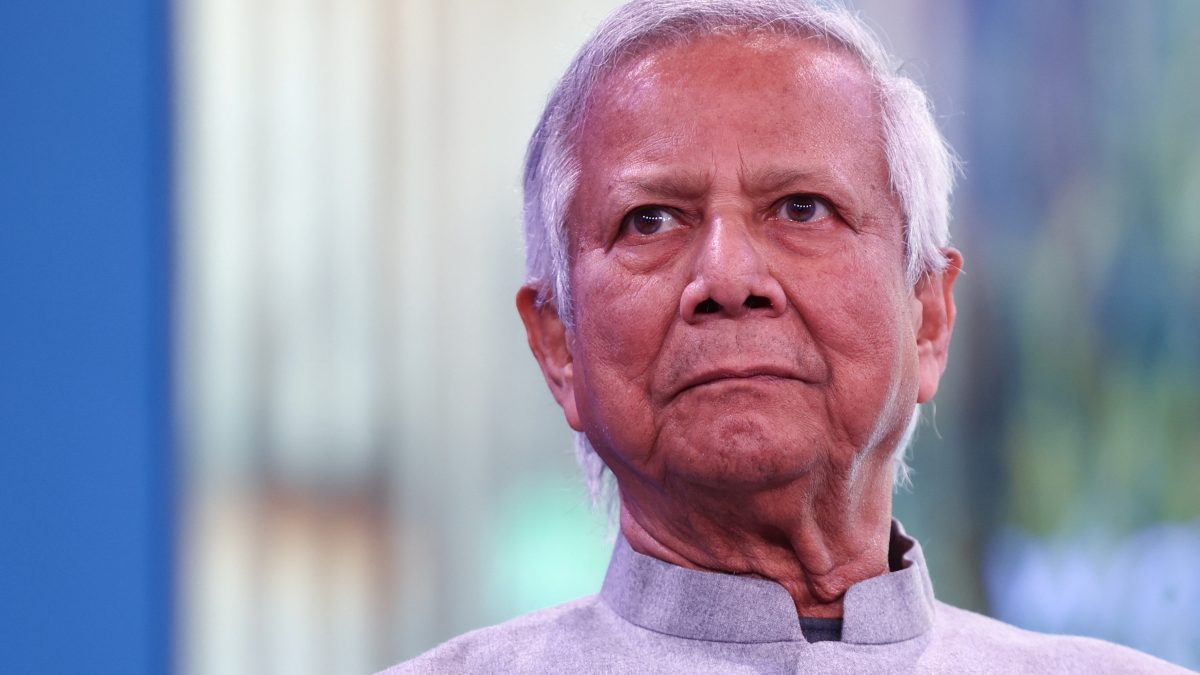Finally, the chief advisor of the interim government of Bangladesh, Mohammad Yunus, has declared that the pending general elections will be held in February next year, although exact dates are yet to be finalised. With this announcement, the Yunus administration’s most challenging task has begun—the task for which it was brought to power last year: conducting a free and fair election and handing power to an elected government.
This announcement puts an end to the uncertainty related to the holding of the general polls. Importantly, this announcement comes at the one-year mark since the fall of Sheikh Hasina’s regime, as the country debates its progress since then.
A welcome decision
The decision of the interim government to hold elections, after several months of delaying, is a welcome step. This decision is now likely to set the political parties into action. Democracy is expected to get a breath of fresh air. Already, the Bangladesh Nationalist Party (BNP), one of the country’s largest parties, has welcomed the election schedule. Jatiya Party and some of the Left parties, although marginal in the country’s politics, have also welcomed the election schedule.
On the other hand, the newly formed National Citizens Party (NCP), often referred to as the King’s party, owing to its backdoor relations with the Yunus administration, has no problem with the timing of the elections but has expressed concern over free and fair elections. The party is also concerned with electoral reforms and ensuring justice for those killed in the uprising movement last year against the then Hasina government. The Islamic party, Islami Andolan Bangladesh (IAB), has also expressed concern regarding political reforms.
Will the Yunus administration be neutral?
Whether the elections will be free and fair will depend mostly on the Yunus administration’s true intentions. There have been questions over those intentions.
Students Against Discrimination (SAD), the student group that led the uprising against the Hasina government, was behind the installation of Yunus as the chief advisor, and the same group was behind the formation of NCP. The Yunus government has been accused of being soft on the new party. The interim government’s decision to ban Awami League (AL), one of the country’s major parties, in May came after pressure from the NCP. That is why the party is, rightly, called the King’s party. This also casts aspersions on the Yunus government’s neutrality.
It is true that AL under Sheikh Hasina made many mistakes. The most significant was turning the country into an authoritarian one. But banning AL, which has at least a vote share of 30 per cent, isn’t the proper solution. Despite its flaws and misrule, the party has the right to contest elections. The right to scrutiny of AL rests with the voters. If it is banned, then how will it face the scrutiny of the voters? This action definitely doesn’t strengthen democracy.
Impact Shorts
More ShortsThe general secretary of the Communist Party of Bangladesh, Ruhin Hussain Prince, who is also the coordinator of the Left Democratic Alliance—a bloc combining six left-leaning parties—has been clear that the country needs a neutral administration to oversee the elections, as he believes that the Yunus administration has lost neutrality.
This shows that a section within the country now sees the Yunus administration, which was formed to be a non-political and neutral body, through a political lens. The activities of the Yunus administration confirm this perception. The July Declaration, unveiled by Yunus himself on August 5, shows that the administration has yet to overcome its obsession with Sheikh Hasina and her 15 years in power. The interim government seems too occupied with the past and is trying to rewrite the country’s history by trying to omit the contributions of Sheikh Mujibur Rahman and the role of his party, AL, in the struggle for independence, along with the contributions made by its neighbour, India.
With allegations of declining law and order due to a rise in mob violence and attacks on religious minorities, particularly Hindus, becoming the norm, and with increasing cases of suppression of journalists, the interim government has been under scrutiny for failing to protect its own people and maintaining law and order. But the Yunus-led interim government, instead of focusing on its task, is busy rewriting history through the distortion of facts. And this raises doubts over its true intentions to hold free and fair elections.
Not an easy sail
The country has a history of manipulated elections, and such elections have taken place not only under AL rule, as the Yunus-led administration wants the public to believe. These manipulated elections have been occurring since the first elections of independent Bangladesh in 1973 under Sheikh Mujibur Rahman. This continued under military leaders Zia-ur-Rahman, founder of BNP, and Hussain Muhammad Ershad, the founder of Jatiya Party, in the 1970s and 1980s. The first free and fair election held in the country was in 1991, but the ghost of manipulated elections returned through the February 1996 elections held under the Khaleda Zia-led BNP government. The manipulated election was overturned later that year by a free and fair election following public pressure.
During 2006-2008, there were again attempts to take the country towards authoritarianism. But the elections of 2008 temporarily halted that process. The process of conducting free and fair elections itself is a big task in Bangladesh. And with the Yunus-led administration, whose neutrality is being doubted, at the helm, doubts do remain.
Bangladesh awaits a free and fair election to strengthen its path towards democracy. By announcing elections next February, Yunus has, for now, set the country on the path to begin the democratic process, but the future remains to be seen.
The writer is a political commentator. He tweets @SagarneelSinha. Views expressed in the above piece are personal and solely those of the author. They do not necessarily reflect Firstpost’s views.
)